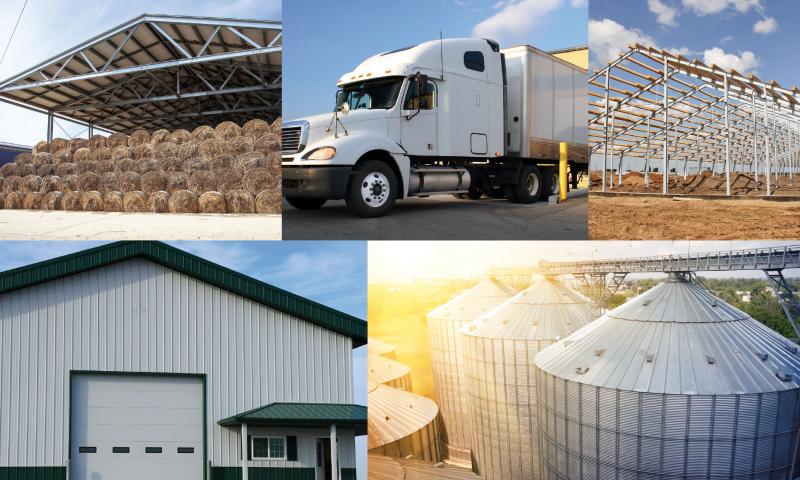A New Look: Leasing for farms in transition

It used to be that leasing was something you did when you couldn’t afford to buy equipment outright. But today’s ag producer recognizes leasing as a tool that offers distinct advantages for keeping operations flowing smoothly.
Some of the key benefits of leasing are particularly advantageous in farm transitions, said Southwest Georgia Farm Credit Relationship Manager Ragan Fretwell Brown. As farms often take years to transition from one generation to the next, both parties should consider how leases might fit into their plans.
For example, leasing is less costly than borrowing, Brown said. “The payments are cheaper on a lease than a loan.” So the current producer can benefit from a fixed rate and reduced overhead—advantages that can be passed along to the successor generation. Additionally, if equipment must be acquired during the transition period, the owner can consider leases to allow more options for the buyer.
What to lease and why
The field of what can be leased has grown, which provides even greater opportunities for both current and future generation producers. Some examples of what can be leased:
- Equipment (hay bailers, planters, sprayers, tractor)
- Processing and packaging equipment
- Metal buildings and shelters
- Grain bins
- Fleet Vehicles
Flexibility is what makes leases most attractive to ag producers, Brown said, and there are many types of payment options. “They can be structured to match harvest cycles, cash flows, and tax requirements,” she said. Plus, payment schedules can be monthly, quarterly, semi-annually or annually.
Leases also come with certain tax advantages, she added. Borrowers can benefit by reducing their taxable income by running payments through their income statement, which can give farmers a greater benefit than taking a standard depreciation and interest with a loan, or depreciation only with a cash purchase.
Helping successor succeed
At the end of the lease, the next generation farmer will have the same options outlined in the lease terms, Brown said. For example, if the lease is for a piece of equipment, they can purchase the item or turn it in, or decide to purchase new equipment with a new lease agreement.
All of these benefits add up to better cash flow for the buyer, so they can spend it in other areas.
If the farm is in transition, leases can be a tool to help that next generation as they build equity on their own and prepare to buy the farming business. Some families offer part of the farm to the next generation for that purpose—to learn all aspects of an ag operation. “Leased equipment does not encumber real estate,” Brown said, “so a lease customer can put equipment or a building on family land easily.”
So how do you arrange a lease for your equipment, structure or vehicles? In most cases, farmers go direct to the dealer (the seller); they choose the equipment and discuss leasing options at that point. But as a 17-year veteran of Southwest Georgia Farm Credit, now overseeing leasing, Brown can help. She frequently discusses options with current and next generation producers.
Brown encourages anyone considering a lease to consult with their tax advisor to discuss their specific circumstances and cash flow requirements, especially in relation to a pending farm transition.
For further details, contact Ragan Fretwell Brown via email: RBrown@SWGAFarmCredit.com or phone: 229.254.6391.